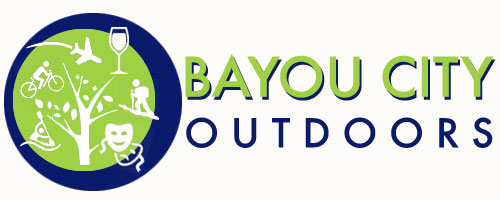Ultralight Backpacking
By Teresa Biggar, BCO Event Leader
“Trek among the beautiful mountains while sampling local chocolate and cheese.”
My interest picked up like Scooby-Doo being offered a Scooby snack when I read this first line of a travel article in 2015.
I want to sample chocolate and cheese while hiking, I thought to myself. And so, began my quest for this adventure!
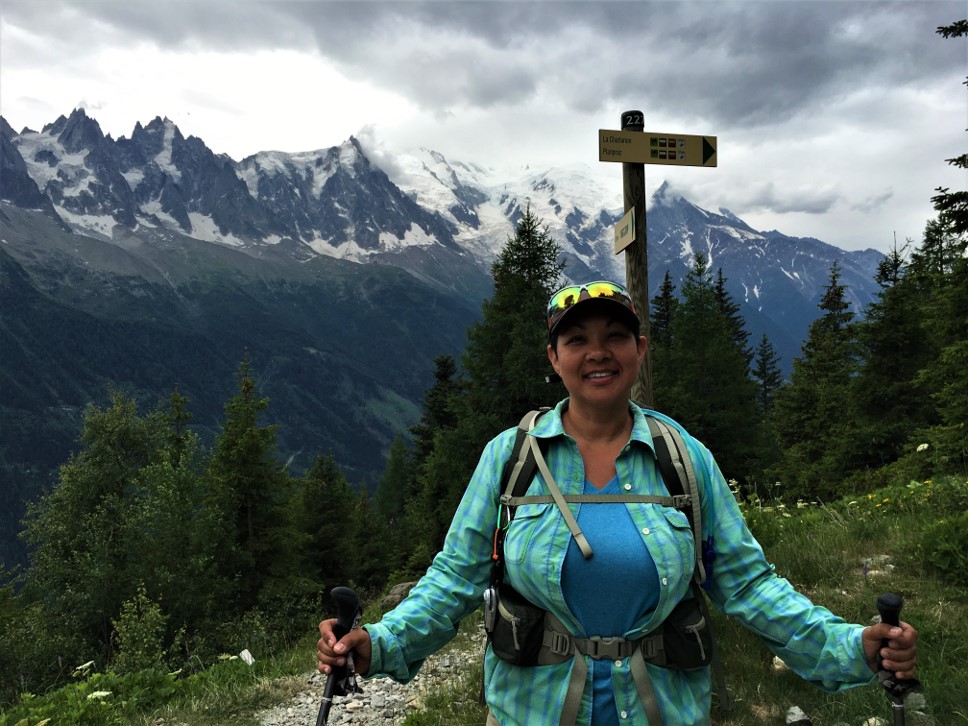
Tour du Mont Blanc is a 170 km trek around the entire Mont Blanc Massif traversing through three countries (France, Italy, Switzerland) with almost 10,000 meters of breathtaking ascents and descents. The trail (around NOT up) Mont Blanc allows you to experience stunning vistas with quaint mountain villages along the way. The trail is clearly marked, water is readily available via rustic water fountains, clear, clean mountain streams, or a village market.
Trekkers can stay in rustic, mountain Refugios, carrying a light backpack with light snacks and sleeping attire, or an even lighter backpack if you pay to have your sleeping attire delivered! Or trekkers can be fully self-sufficient and camp the entire way. I chose an in-between option suited to my comfort level. I camped but ate lunch and dinner at cafes or Refugios along the way. This minimized my pack load by eliminating carrying food and a stove/fuel.
Have I ever done a long-distance trek? Nope. But I wasn’t going to let that stop me! Aside from training for my 2017 TMB trek (that’s where BCO came into my life), I began researching equipment – specifically ultralight equipment since I planned on camping rather that staying at the many Refugios along the way.
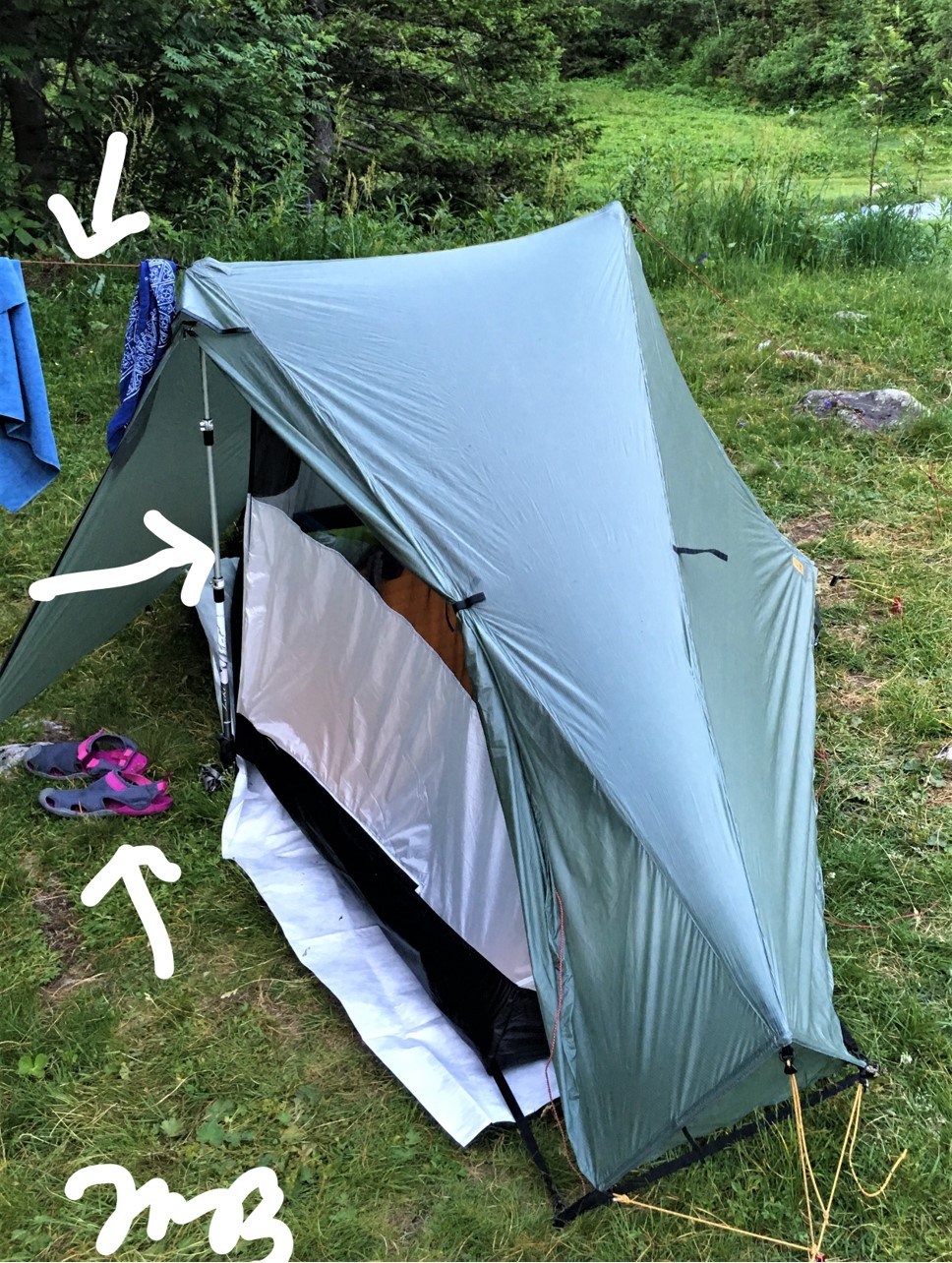
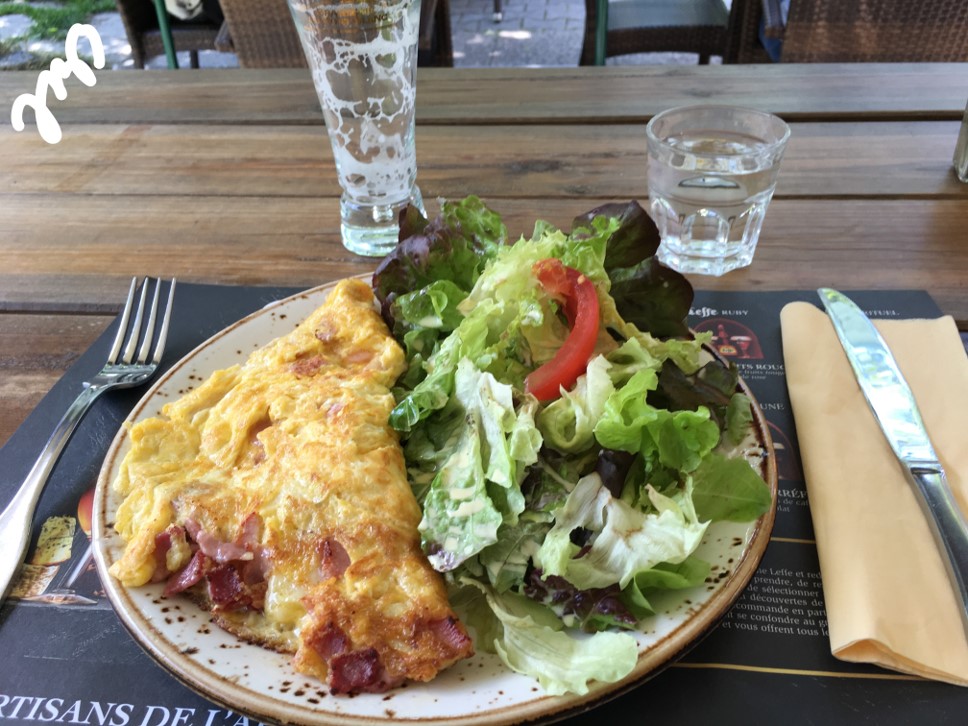
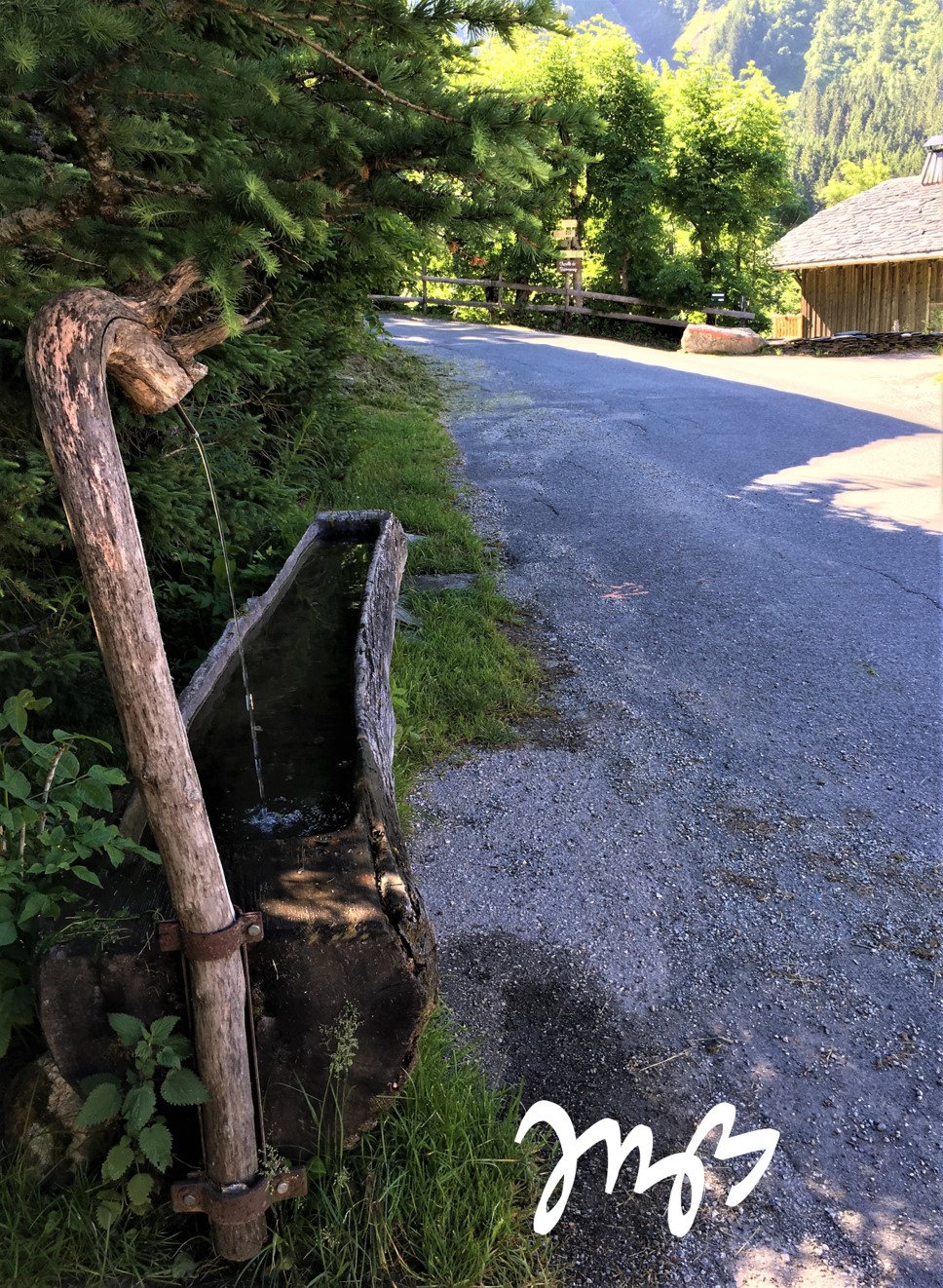
After much research from hiking and equipment blogs, talking to BCO folk, and watching for sales, I got my pack weight down to 20-25 pounds on a budget! I knew that the elevation gains and descents would be challenging for me, to say the least. The less weight on my back, the easier the trek.
Here’s my pack list, followed by tips. You CAN backpack ultralight without breaking the bank with planning and time – enjoy!
Tour du Mont Blanc Pack list for 13 days, 170 km, June 2017
- Sleeping Mat: Nemo Cosmo Air 20R - 1lb 14oz
• Sleeping bag: Sea to Summit - 1lb 13oz ($151 on sale)
• Backpack: Granite Gear 65L - 2lb 1oz ($199)
• Tarptent Notch tent - 1lb 11 oz ($285)
BASE WEIGHT = 119 oz / 7 lbs 7oz
- Trekking poles 1lb 3.6oz
• Combo whistle/compass, headlamp, Trowel 3.1 oz, sunscreen, gaiters
• i-phone 6S, phone charger plug and cord
• Thinlight Foam pad (70g)
• Eating ware: .6L Mug 6.3 oz (mug 92g, in sleeve 20g, lid 42g, telespoon 9g)
• Backpack liner: trash compactor bag
• Wearing: Hiking pants that zip off, hiking shirt, long-sleeve button up shirt, sports bra & underwear, baseball cap, wool socks with silk liners, hiking boots, sunglasses, buff
• Rain & Warmth: Rain pants & jacket, black ArmourAll long-sleeve shirt, puffy vest
• Sleepwear & camp clothes: Warm skullcap, light t-shirt, leggings, light bra, wool socks, light shoes
• Extra: wool socks with silk liners, underwear (1), t-shirt
• Bar of soap, tooth powder, toothbrush, comb, towel, EOs, coconut salve, Vicks salve, lip balm, wet wipes, tissue, pedicure flip-flops (zip lock)
• First aid kit: Regular band-aids (4), Neosporin, alcohol wipes, moleskins (4), ibuprofen, antihistamine, ankle wrap, gauze, duct tape, small swiss army knife (zip lock)
• Gallon size zip lock bags (2), 3 oz. bottle of apple cider vinegar, para cord
• Maps with daily itineraries (zip lock)
• Food: instant coffee with creamer (12), nuts, oatmeal (8), breakfast bars (10) (zip lock)
• Hydration: 1-liter Smart water bottles (2), 16-oz. smart water bottle, hydration hose, bottle of iodine pills, pink Himalayan salt, dried coconut water (zip lock)
• Money & ID: Euros, credit card, travel insurance, passport (zip lock)
TIPS & DESCRIPTS
- Sleeping Mat: Nemo Cosmo Air 20R – If I had to do this over, I would have purchased the ¾ length rather than the full length. Sleeping in a small tent with my gear inside allows me to lay it under the bottom part of my legs. I could have saved a chunk weight with a smaller mat. You can get much lighter mats, but this mat is 3.5” thick and like sleeping on a regular mattress. I put value on a good night sleep, so this is my “luxury” item!
• Backpack: Granite Gear 65L – I did not take the “brains” so that took off weight and made it a 55L. This was enough for me.
• Trekking poles – These were used to hold up my tent, so I needed poles that could adjust. If I had to do it again, I would purchase the light poles that go with the tent rather than use my trekking poles. This gives more flexibility if using a base camp where you leave your tent and take day hikes.
• Trowel – I do not take a trowel anymore (though you can get an even lighter one). Instead I take an extra tent stake for double duty: it will dig holes AND be extra in case I lose one.
• i-phone 6S, phone charger plug and cord, 5000mAh power bank – I used this for my navigation & camera. I kept it on Airplane mode to conserve the battery. I could charge while having lunch, or at a Refugio during dinner.
• Thinlight Foam pad (70g) – extra insulation for the sleeping mat & keeps it from sliding
• Rain pants & jacket were enough to provide extra warmth if I needed it. Keep it in a place where it is easily accessible. The puffy vest was good for in camp.
• I had light water shoes to use at night, but they doubled for water crossings if needed. Then I just hung them from my pack to dry while hiking.
• Extra: wool socks with silk liners, underwear (1), t-shirt – I would swap these out after a couple days. Everyone is fragrant on the trail!
• I used a finger brusher as a toothbrush to save weight! I got it from the pet store. I also packed small vials of peppermint and lavender essential oil. I could use them alone for freshening water & breath, headaches, or combine with the coconut salve to rub on aching muscles.
• I used the flimsy flip flops they give you after a pedicure for showers. They are super light, dry very quickly, and protect your feet in public showers.
• First aid kit: I kept this simple because I would be going through villages or be around people who could help if needed.
• Gallon size zip lock bags (2), 3 oz. bottle of apple cider vinegar (ACV) – I used one-gallon size zip lock to wash items if there was no sink. I put a cap of ACV and a few drops of peppermint in the water to wash items. ACV is also incredibly good if you have a sore throat or are getting a cold – one cap a day to fortify yourself!
• I used the paracord to hang my clothes after washing. I would twist it together to secure my clothes instead of clothespins. It can also be used as shoelaces and any other need for tying.
• Maps with daily itineraries – One for each day that was thrown away when done!
• I cold soaked my oatmeal if I did not have access to hot water. The instant coffee I brought was for cold coffee. I used the small water bottle for coffee in the morning and made my own electrolyte water with the salt and dried coconut powder.
• I took off any packaging and used light zip lock bags instead. This can save quite a bit of weight. I also did not use the covers for my tent, sleeping bag/mat to save the weight.
• I had wet wipes and a zip lock bag if I could not find a toilet. I also used a light bandana as a pee rag that hung from the back of my pack – much less trash.
